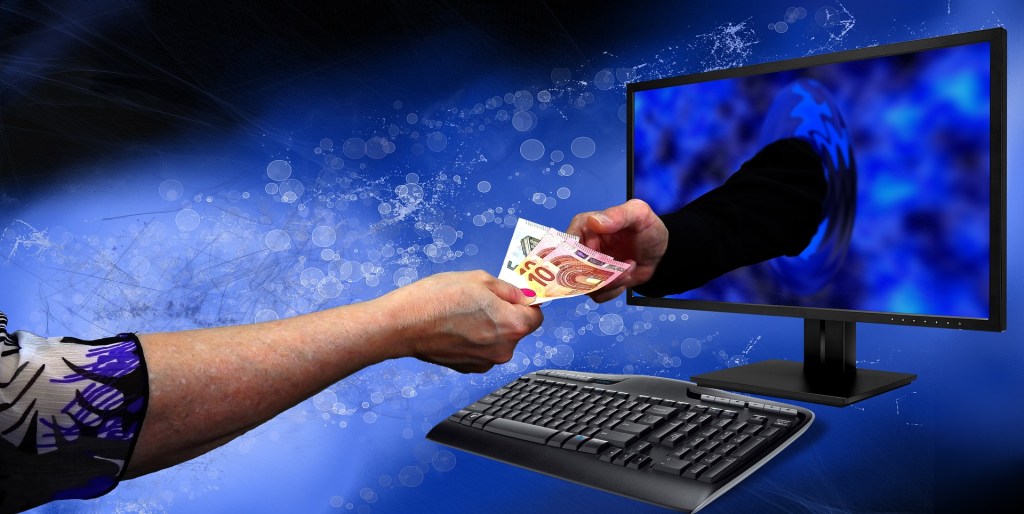Apple Pay scams have been going up recently. People that are getting used to new digital payment methods are still largely unaware about the underlying process and that makes them extremely vulnerable. On the flip side of the equation, scammers can easily fool the public and trick them into giving up all the sensitive information.
Phishing pages and social engineering hustles targeting the users of this e-wallet is almost unparalleled. Of course, Apple and other authorities are aware of the situation and they have taken steps to raise awareness. Sadly, the efforts put by scammers are hefty and as a result, they are making a fortune by ripping people off financially.
Go through the following information and it will help you learn everything you need to know about the way it works. If you want to start the recovery process, then talk to our staff via the chat box or fill out the form provided below.

What is Apple Pay?
Apple Pay is a payment system that allows users to make transactions using their Apple devices. It was first introduced in 2014 and is available in many countries around the world.
It works by using Near Field Communication (NFC) technology to allow users to make payments by holding their device close to a contactless payment terminal. This is similar to how contactless credit and debit cards work.
It is secure because it uses a unique Device Account Number for each transaction. This number is stored on the device and is never shared with the merchant. Apple Pay also uses a PIN or fingerprint to authenticate each transaction.
Overall, the app is a convenient and secure way to pay for goods and services using your Apple device.
Is it really secure?
There is no doubt that Apple Pay is a secure way to pay for goods and services. The technology behind it is very sophisticated and uses a number of security measures to protect your personal information. However, there are always risks associated with any kind of financial transaction, and it is important to be aware of these before using Apple Pay.
One of the main concerns with it is that it uses a ‘token’ system to replace your actual card number with a randomly generated number. This means that if your device is lost or stolen, your card number is not at risk of being compromised.
However, it is possible for someone to gain access to your device and use your account without your knowledge. This is why it is important to have a strong password on your device and to keep it locked when not in use.
Get in touch with our affiliated Cryptocurrency Forensic Specialists at CNC Intelligence for free by filling out the form below.
Another concern is that, because Apple Pay transactions are processed through the NFC (Near Field Communication) system, they are not as secure as transactions that are processed through the EMV (Europay, Mastercard, Visa) system. This is because NFC is a relatively new technology and has not been as extensively tested as EMV. However, the security measures that are in place on the devices are very effective and there have been no reported cases of fraud associated with Apple Pay.
Overall, it is a secure way to pay for goods and services. However, as with any financial transaction, there are some risks associated with its use. It is important to be aware of these risks before using the app.
How to stay safe from Apple Pay Scams
As there are many forms of threats present, the following things are something that you have to follow at all times. Always keep an open mind and look for inconsistencies as they help you determine the legitimacy in most cases.
- Only give and receive money from individuals you know. Ensure that the person seeking money is not impersonating someone you know or trust, such as a family member, employer, government agency, or charity, even if the account from which the request came seems to be authentic. Confirm the individual’s identity and payment details through direct conversation. If their identity is questionable, you should not give them money.
- If you get a payment request from an unknown sender, click Report Spam underneath the message. You may also avoid further contact from unknown senders by screening their communications.
- Be cautious when a company seeks money via Messages. If you did not initiate contact with the firm directly, you may have committed fraud.
- Before you confirm the payment details, thoroughly examine it. If you paid the incorrect amount or recipient, you should attempt to cancel the payment or obtain a refund.
- Examining the payment information in your list of recent transactions may help you verify the validity of a payment you have received.
- Never provide your Apple ID password to a third party.
Need Help?
If you have lost money because of any kind of Apple Pay Scams, then reach out to us. Our team will help you find the culprit and retrieve the funds at the earliest.
Filing an official complaint is also a good idea. Do not forget to gather as much information as you can before reaching out to us. Once we have all the data, there are plenty of ways to make the crooks pay up legally.
Conclusion
As scammers get more creative, it is indeed hard to eradicate their operations. However, the best way to nullify them is by teaching people about the fundamentals and creating awareness. Once the masses are educated, crooks will eventually starve to death.
If you found this post helpful, then do not forget to share it with your friends and family.
When you comment, your name, comment, and the timestamp will be public. We also store this data, which may be used for research or content creation in accordance with our Privacy Policy. By commenting, you consent to these terms.

